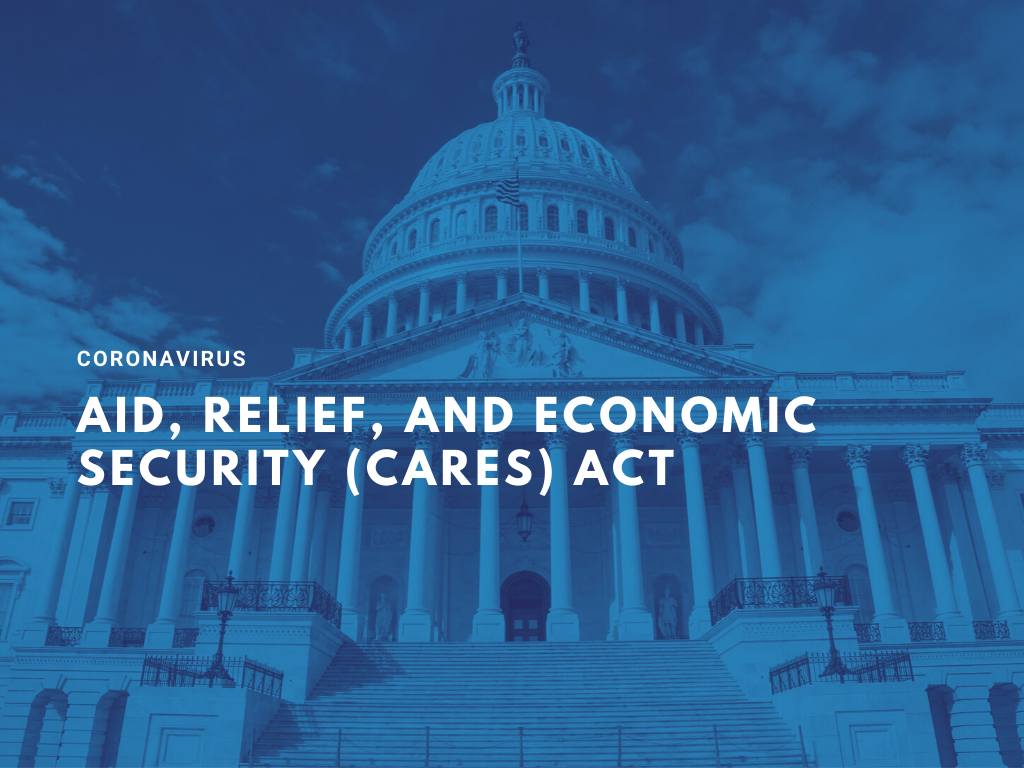
On Wednesday evening, the Senate passed the latest version of the Coronavirus Aid, Relief, and Economic Security (CARES) Act. If approved by the House of Representatives and made into legislation, the CARES Act will be set to provide over $2 trillion in COVID-19 relief in the form of small business loans, paycheck protection loan forgiveness, emergency government disaster loans, and more in addition to individual stimulus payments. Below are some key takeaways:
Small Business Loans
Businesses with less than 500 employees, including sole proprietors and nonprofits, will have access to $350 billion in loans, which will cover the period running from February 15, 2020 to June 30, 2020. These “paycheck protection loans” will be fully guaranteed by the federal government up until December 31, 2020, going back to an 85% guarantee for loans greater than $150,000 after that date, and will be limited to the lesser of:
- The average monthly payroll costs for the 1 year period ending on the date the loan was made (an alternative calculation is available for seasonal employers) multiplied by 2.5. These costs may not include compensation of individual employees in excess of an annual salary of $100,000, payroll taxes, compensations for employees living outside the U.S., or any qualified sick leave or family medical leave for which a credit is allowed under the new Coronavirus Relief Act passed last week.
- $10 million.
The loans will have a maximum maturity of 10 years and their interest rates are not to exceed 4%. The standard fees imposed under Section 7 of the Small Business Act will be waived, and no personal guarantee will be required by the business owner. Moreover, an additional provision in the CARES Act will provide a possible deferment of these loans for at least six months, but are not to exceed a year.
Loan Forgiveness of Paycheck Protection Loans
A separate section of the CARES Act calls for a portion of these paycheck protection loans to be forgiven on a tax-free basis. The amount to be forgiven is the sum of payroll costs as defined in the Act, mortgage interest, rent, and certain utility payments made by the borrower during the 8-week period after the business receives the loan.
In order to seek this loan forgiveness, a borrower must submit an application that includes documentation verifying the number of employees and pay rates, in addition to canceled checks showing mortgage, rent, or utility payments.
There is a provision, however, that reduces the amount that may be forgiven if the employer either:
- Reduces its workforce during the 8-week covered period when compared to other periods in either 2019 or 2020, or
- Reduces the salary or wages paid to an employee who had earned less than $100,000 in annualized salary by more than 25% during the covered period.
However, this reduction can be avoided if the employer rehires or increases the employee’s pay within an allotted time period.
Emergency Government Disaster Loan
The CARES Act will also expand access to Economic Injury Disaster Loans to also include sole proprietors and ESOPs. For any loan made under this program before December 31, 2020, no personal guarantee will be required on loans below $200,000, and the government will pay the principal and interest on a paycheck protection loan for the first six months for which payments are due. This government subsidy does NOT apply to the paycheck protection loans discussed above.
Also, the Act creates a new Emergency Grant to allow a business that has applied for a disaster loan to get an immediate advance of up to $10,000. This advance can be used to maintain payroll, and is not required to be repaid, even if the borrower’s request for a 7(b) loan is denied.
Again, the CARES Act is yet to be approved by the House of Representatives as of Thursday, March 26, 2020. As more information is made available in the coming days, we will be providing updates on how those can affect you and your business.
Please do not hesitate to contact us with any questions or concerns.
©2020
Posted on
